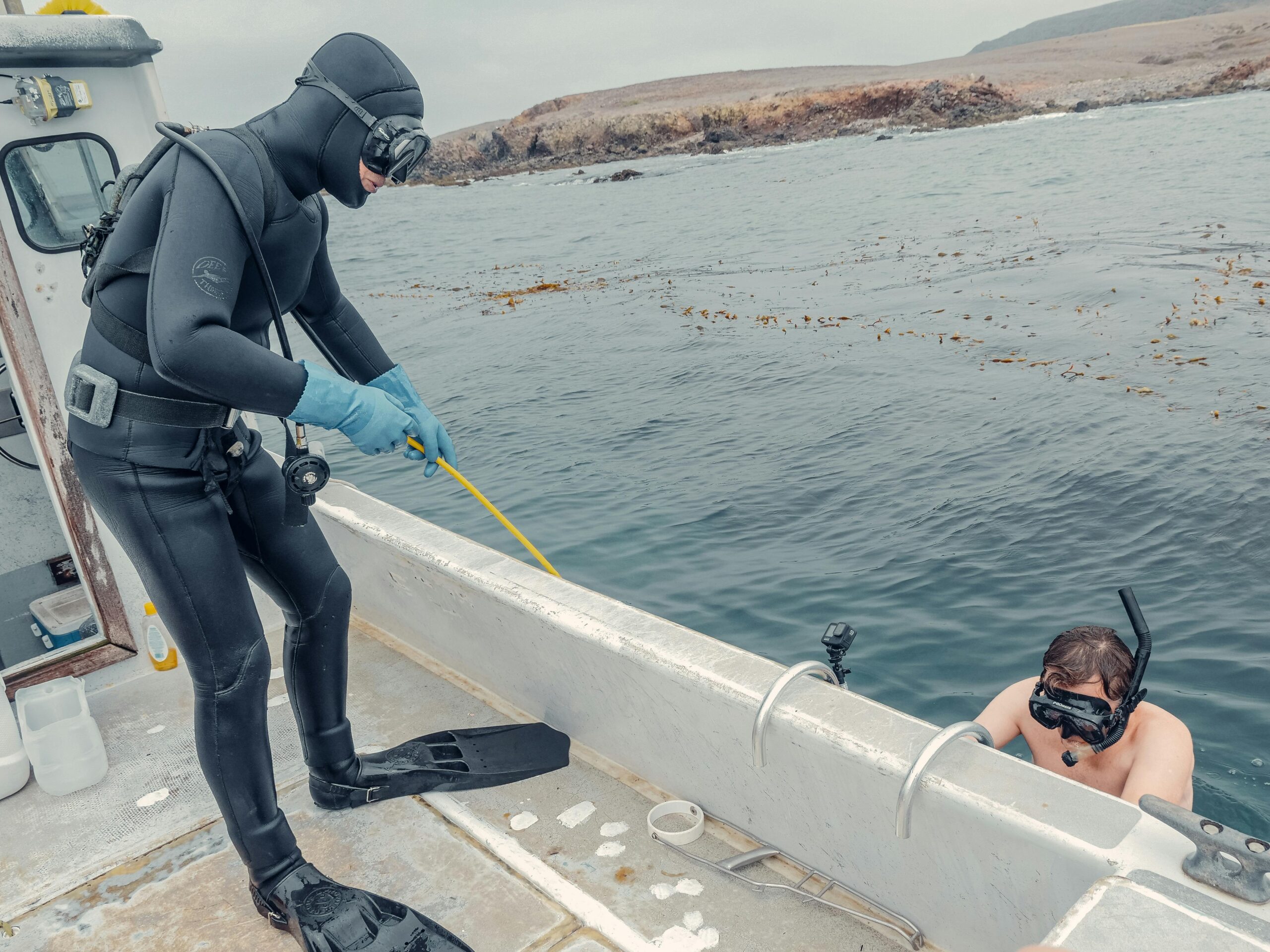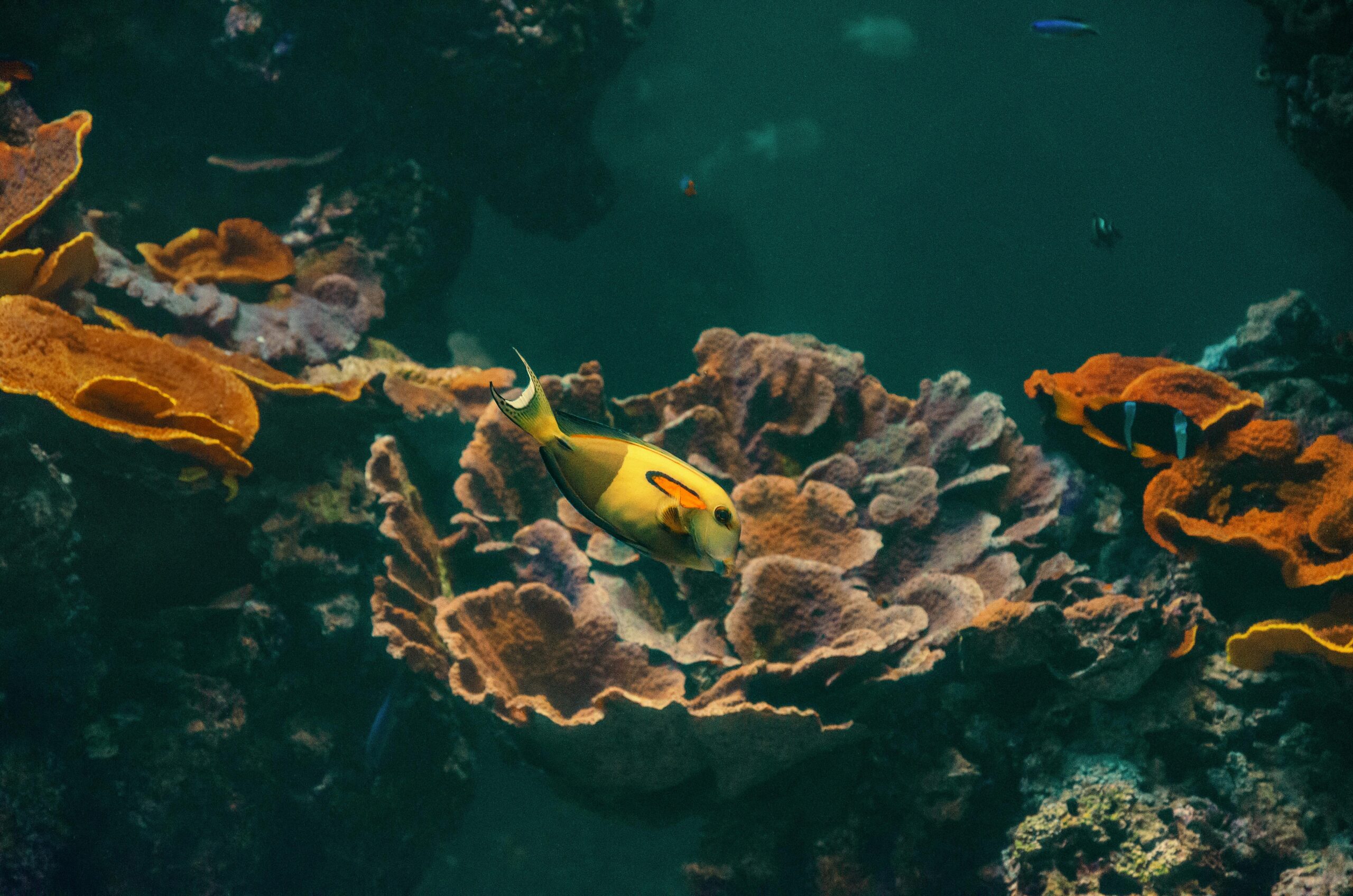The ocean covers over 70% of our planet, yet faces unprecedented threats from pollution, overfishing, and climate change. Fortunately, forward-thinking corporations are stepping up with innovative sustainability initiatives.
🌊 Why Corporate Ocean Sustainability Matters Now More Than Ever
The health of our oceans directly impacts global food security, climate regulation, and biodiversity. Corporate activities have historically contributed to ocean degradation through plastic pollution, industrial runoff, and unsustainable fishing practices. However, a transformative shift is underway as businesses recognize their responsibility and opportunity to become stewards of marine environments.
According to recent studies, approximately 8 million tons of plastic enter our oceans annually, with corporations responsible for a significant portion of this waste. The business sector’s carbon emissions also contribute to ocean acidification and warming, disrupting delicate marine ecosystems. These stark realities have prompted innovative companies to reimagine their operations and develop comprehensive ocean sustainability strategies.
The economic argument for ocean conservation is equally compelling. Healthy oceans generate approximately $2.5 trillion annually in goods and services, supporting billions of livelihoods worldwide. Companies that invest in ocean sustainability position themselves advantageously for long-term success while contributing to planetary health.
Pioneering Companies Leading the Blue Revolution
Several multinational corporations have emerged as leaders in ocean sustainability, implementing groundbreaking initiatives that set new industry standards. These trailblazers demonstrate that profitability and environmental stewardship can coexist harmoniously.
Adidas and Parley for the Oceans Partnership
Adidas has transformed ocean plastic waste into high-performance sportswear through its partnership with Parley for the Oceans. Since 2015, this collaboration has intercepted plastic waste from beaches and coastal communities before it reaches the ocean, converting it into premium athletic shoes and apparel. The company has produced over 30 million pairs of shoes using ocean plastic, preventing approximately 2,810 tons of plastic from polluting marine environments.
This initiative extends beyond product manufacturing. Adidas has committed to using only recycled polyester in all products by 2024, fundamentally reshaping its supply chain. The company also educates consumers about ocean conservation through marketing campaigns that highlight the connection between their purchases and environmental impact.
Maersk’s Decarbonization Commitment
As the world’s largest container shipping company, Maersk handles approximately 20% of global GDP transported by sea. Recognizing its environmental footprint, Maersk has pledged to achieve net-zero emissions by 2040, ten years ahead of the International Maritime Organization’s target. The company is investing heavily in sustainable fuel alternatives, including methanol-powered vessels and exploring hydrogen and ammonia technologies.
Maersk’s first carbon-neutral vessel launched in 2023, marking a significant milestone in maritime sustainability. The company is also collaborating with suppliers and customers to create green supply chains, demonstrating that ocean sustainability requires ecosystem-wide commitment.
🐟 Revolutionizing Sustainable Seafood Practices
The fishing industry faces critical sustainability challenges, with approximately 34% of global fish stocks overexploited. Progressive companies are implementing innovative solutions to ensure seafood remains available for future generations while protecting marine ecosystems.
Technological Innovation in Fisheries Management
Companies are deploying advanced technologies to promote sustainable fishing practices. Electronic monitoring systems using artificial intelligence can identify fish species, track catch volumes, and detect illegal fishing activities in real-time. These systems provide unprecedented transparency and accountability throughout the supply chain.
Blockchain technology is also revolutionizing seafood traceability. Consumers can now scan QR codes to access detailed information about their seafood’s journey from ocean to plate, including fishing methods, boat identification, and certification status. This transparency empowers consumers to make informed choices while incentivizing sustainable practices.
Aquaculture Innovation and Regenerative Practices
Sustainable aquaculture represents a promising solution to seafood demand without depleting wild fish populations. Companies like Ocean Rainforest are pioneering seaweed farming, which requires no freshwater, fertilizers, or land while actively absorbing carbon dioxide and nitrogen from seawater. Seaweed farming creates habitat for marine life and can be integrated with fish farming to create regenerative ocean ecosystems.
Norwegian companies are leading in closed-containment aquaculture systems that minimize environmental impact, prevent fish escapes, and eliminate sea lice problems associated with traditional fish farming. These innovations demonstrate how technology can transform aquaculture into a truly sustainable protein source.
Plastic Pollution Prevention: Corporate Strategies That Work
Plastic pollution remains among the most visible and damaging threats to ocean health. Forward-thinking corporations are implementing comprehensive strategies to eliminate plastic waste throughout their operations and supply chains.
Circular Economy Models in Action
Companies are transitioning from linear “take-make-dispose” models to circular systems that eliminate waste. Unilever has committed to halving its virgin plastic use by 2025 while ensuring all plastic packaging is reusable, recyclable, or compostable. The company is investing in collection and recycling infrastructure, particularly in developing countries where waste management systems are inadequate.
Coca-Cola’s “World Without Waste” initiative aims to collect and recycle the equivalent of every bottle or can it sells by 2030. The company is redesigning packaging, investing in recycling infrastructure, and partnering with communities to improve waste collection systems. These efforts recognize that corporate responsibility extends beyond manufacturing to include end-of-life product management.
Innovation in Alternative Materials
Material science innovations are creating alternatives to conventional plastics. Notpla, a London-based startup backed by major corporations, has developed packaging from seaweed and plants that biodegrades within weeks. These materials are being tested by food delivery services, event organizers, and retailers seeking ocean-friendly packaging solutions.
Mushroom-based packaging, algae-derived plastics, and other bio-materials are emerging as viable alternatives for various applications. Corporate investment in these technologies accelerates their commercial viability and market adoption.
🌡️ Climate Action Through Ocean-Based Solutions
The ocean absorbs approximately 25% of human-generated carbon dioxide, making it a critical ally in climate mitigation. Companies are investing in ocean-based climate solutions that simultaneously address carbon emissions and marine ecosystem health.
Blue Carbon Credit Markets
Coastal ecosystems like mangroves, salt marshes, and seagrass meadows sequester carbon at rates up to 40 times higher than terrestrial forests. Progressive companies are investing in blue carbon projects that restore these vital ecosystems while generating verifiable carbon credits.
Microsoft, for example, has purchased blue carbon credits from mangrove restoration projects as part of its carbon-negative commitment. These investments provide funding for ecosystem restoration while delivering measurable climate benefits. The blue carbon market is projected to grow substantially as more companies recognize the value of ocean-based climate solutions.
Offshore Renewable Energy Expansion
Offshore wind energy represents a massive opportunity to decarbonize electricity generation while minimizing land use. Companies like Ørsted have transitioned from fossil fuel energy to become global leaders in offshore wind development. Ørsted now operates wind farms across multiple continents and has committed to net-zero emissions across its entire value chain by 2040.
Floating wind technology is expanding renewable energy potential to deeper waters, opening vast ocean areas for clean energy generation. These developments demonstrate how oceans can be part of the climate solution when developed responsibly with proper environmental safeguards.
Collaborative Initiatives Amplifying Ocean Impact
The most successful ocean sustainability initiatives often involve collaboration across industries, sectors, and stakeholders. Multi-stakeholder partnerships leverage diverse expertise, resources, and perspectives to tackle complex challenges.
The Ocean Cleanup and Corporate Partnerships
The Ocean Cleanup, a nonprofit organization developing technologies to remove plastic from oceans, has partnered with corporations to fund research, development, and deployment of cleanup systems. Corporate partners receive plastic recovered from the ocean, which they incorporate into products, creating circular value chains.
These partnerships demonstrate how corporations can support innovative solutions beyond their direct operations. By funding ocean cleanup technologies, companies contribute to addressing historical pollution while developing sustainable material sources.
Industry-Wide Sustainability Standards
Collaborative initiatives are establishing industry-wide sustainability standards that level the playing field and accelerate progress. The Marine Stewardship Council certifies sustainable fisheries, while the Aquaculture Stewardship Council does the same for fish farms. These certification programs provide consumers with reliable information while incentivizing producers to adopt best practices.
The Sustainable Ocean Principles, developed by the UN Global Compact, provide a framework for corporate ocean responsibility across all sectors. Companies adopting these principles commit to understanding ocean impacts, implementing sustainable practices, and transparently reporting progress.
💼 Business Benefits of Ocean Sustainability Leadership
Companies investing in ocean sustainability realize substantial business benefits beyond environmental impact. These advantages strengthen the business case for comprehensive ocean stewardship.
Brand Differentiation and Consumer Loyalty
Consumers increasingly prefer brands demonstrating genuine environmental commitment. Ocean sustainability initiatives resonate powerfully with environmentally conscious consumers, particularly younger demographics. Companies with authentic ocean conservation programs build stronger brand loyalty and command premium pricing for sustainable products.
Research indicates that 73% of millennials are willing to pay more for sustainable products. Ocean-focused sustainability initiatives provide compelling narratives that connect with consumers emotionally, driving purchasing decisions and long-term brand relationships.
Risk Mitigation and Regulatory Compliance
Proactive ocean sustainability measures help companies anticipate and adapt to evolving environmental regulations. Governments worldwide are implementing stricter standards for plastic use, emissions, and ocean resource extraction. Companies leading sustainability efforts face lower regulatory compliance costs and reduced operational disruption as regulations tighten.
Ocean sustainability also mitigates supply chain risks. Companies dependent on marine resources or ocean shipping face increasing climate-related disruptions. Investments in ocean health protect long-term resource availability and operational stability.
Emerging Technologies Transforming Ocean Conservation
Technological innovation is accelerating corporate ocean sustainability efforts, enabling more effective monitoring, conservation, and restoration initiatives.
Artificial Intelligence and Ocean Monitoring
AI-powered systems analyze satellite imagery to detect illegal fishing, monitor coral reef health, and track plastic pollution accumulation. These technologies provide real-time data that enables rapid response to emerging threats. Companies are integrating AI tools into supply chain management to ensure compliance with sustainability commitments.
Machine learning algorithms can predict fish population dynamics, optimize fishing quotas, and identify areas requiring protection. These capabilities support science-based decision-making and adaptive management approaches.
Biotechnology and Ocean Restoration
Biotechnology innovations are enhancing coral restoration efforts, developing resilient coral varieties that withstand warming waters and acidification. Companies are funding research into assisted evolution techniques that accelerate coral adaptation to changing ocean conditions.
Genetic technologies are also improving aquaculture sustainability by developing disease-resistant fish strains, reducing the need for antibiotics and chemicals. These innovations make aquaculture more environmentally friendly while improving productivity.
🚀 Scaling Impact: From Pilot Projects to Industry Transformation
While pilot projects demonstrate feasibility, true ocean sustainability requires scaling successful initiatives across entire industries. Companies are developing frameworks to expand impact beyond individual operations.
Supply Chain Engagement and Transformation
Leading companies recognize that comprehensive ocean sustainability requires transforming entire supply chains. Walmart’s Project Gigaton engages suppliers in emission reduction efforts, including ocean-related impacts. The initiative has already prevented over 500 million metric tons of greenhouse gas emissions through supplier collaboration.
Supply chain transformation requires establishing clear standards, providing technical assistance to suppliers, and creating incentives for sustainable practices. Companies are discovering that collaborative approaches deliver greater impact than isolated efforts.
Investment in Ocean-Positive Ventures
Corporate venture capital is increasingly flowing toward ocean-positive startups and technologies. These investments accelerate innovation while diversifying company portfolios toward sustainable solutions. Companies like Patagonia have established venture funds specifically targeting environmental technologies, including ocean conservation solutions.
Impact investing in ocean sustainability represents a growth opportunity as the blue economy expands. Companies positioning themselves as leaders in this space gain competitive advantages in emerging markets.
Measuring and Reporting Ocean Impact
Credible measurement and transparent reporting are essential for demonstrating genuine commitment and accountability. Companies are adopting standardized frameworks to quantify ocean impact and communicate progress to stakeholders.
Science-Based Targets for Ocean Health
Organizations are developing science-based targets for ocean sustainability similar to those established for climate action. These targets align corporate actions with the ocean protection necessary to maintain healthy marine ecosystems. Science-based targets provide clear benchmarks for progress and enable comparison across companies and industries.
The Science Based Targets Network is working to establish comprehensive frameworks that integrate ocean health into corporate sustainability strategies. These frameworks will help companies set ambitious yet achievable goals grounded in environmental science.
Transparent Stakeholder Communication
Leading companies publish detailed sustainability reports documenting ocean-related impacts, initiatives, and progress toward targets. Transparency builds stakeholder trust and demonstrates accountability. Companies are increasingly using digital platforms to provide real-time impact data accessible to customers, investors, and advocacy organizations.
Third-party verification of ocean sustainability claims helps prevent greenwashing and maintains credibility. Independent certification and auditing processes ensure that corporate commitments translate into measurable environmental benefits.
🌟 The Future of Corporate Ocean Stewardship
The corporate ocean sustainability movement continues evolving, with emerging trends suggesting even greater integration of ocean health into business strategy. Forward-thinking companies are positioning ocean stewardship as central to their identity and competitive advantage.
Regenerative ocean practices are gaining traction, moving beyond minimizing harm toward actively restoring marine ecosystems. Companies are exploring how their operations can contribute to ocean health improvement, not merely reduced degradation. This shift represents a fundamental reimagining of the relationship between business and nature.
Digital technologies, including the Internet of Things, blockchain, and artificial intelligence, will enable unprecedented transparency and accountability in ocean-related business activities. Real-time monitoring and verification will make sustainability claims more credible while identifying improvement opportunities.
The financial sector is increasingly incorporating ocean health into investment decisions and risk assessments. Sustainable blue bonds and ocean-focused ESG criteria are directing capital toward ocean-positive businesses while penalizing harmful practices. This financial pressure will accelerate corporate adoption of ocean sustainability initiatives.

Charting Your Organization’s Course Toward Ocean Sustainability
Organizations seeking to develop meaningful ocean sustainability initiatives should begin with comprehensive impact assessments identifying how operations affect marine environments. This assessment should examine direct impacts, such as discharge and resource extraction, as well as indirect effects through supply chains and product lifecycles.
Stakeholder engagement is crucial for developing effective strategies. Companies should consult with marine scientists, conservation organizations, fishing communities, and other affected parties to ensure initiatives address priority issues and incorporate diverse perspectives.
Setting ambitious yet achievable targets provides direction and motivation. Goals should be specific, measurable, time-bound, and grounded in scientific understanding of ocean health requirements. Public commitment to these targets creates accountability and demonstrates leadership.
Implementation requires dedicated resources, clear responsibilities, and integration into core business processes. Ocean sustainability cannot be an afterthought or peripheral activity—it must become embedded in decision-making across the organization.
Collaboration multiplies impact. Companies should seek partnerships with peers, nonprofits, research institutions, and governments to leverage collective resources and expertise. The ocean’s challenges are too vast for any single organization to solve alone.
The journey toward comprehensive ocean sustainability is challenging but essential. Companies embracing this responsibility not only contribute to planetary health but also position themselves for long-term success in an increasingly environmentally conscious marketplace. The waves of change are building—forward-thinking organizations are riding them toward a more sustainable future for our oceans and our world.
Toni Santos is a transpersonal psychology researcher and consciousness writer exploring how inner transformation, archetypal integration, and mindful relationships shape the evolution of the human spirit. Through his studies on shadow work, emotional alchemy, and self-realization, Toni examines how awareness becomes the bridge between psychology and spirituality in the path of awakening. Passionate about the convergence of inner science and contemplative practice, Toni focuses on how ancient wisdom and modern psychology can coexist to support healing, purpose, and expanded consciousness. His work highlights the balance between introspection, integration, and collective evolution — revealing that awakening is both personal and universal. Blending depth psychology, mythology, and consciousness studies, Toni writes about the symbolic patterns and inner journeys that define the human experience. His reflections invite readers to approach spirituality not as escape, but as embodiment — a living dialogue between the self, the shadow, and the sacred. His work is a tribute to: The transformative power of self-awareness and inner healing The union of psychology, spirituality, and archetypal wisdom The path of integration as the essence of human awakening Whether you are a seeker, therapist, or student of consciousness, Toni Santos invites you to explore the evolution of the inner world — one archetype, one realization, one awakening at a time.




